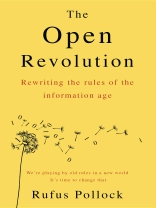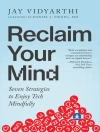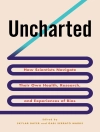Will the digital revolution give us digital dictatorships or digital democracies? Forget everything you think you know about the digital age. It’s not about privacy, surveillance, AI or blockchain—it’s about ownership. Because, in a digital age, who owns information controls the future.
Today, information is everywhere. From your DNA to the latest blockbusters, from lifesaving drugs to the app on your phone, from big data to algorithms. Our entire global economy is built on it and the rules around information affect us all every day.
As information continues to move into the digital domain, it can be copied and distributed with ease, making access and control even more important. But the rules we have made for it, derived from how we manage physical property, are hopelessly maladapted to the digital world.
In this urgent and provocative book, Rufus Pollock shows that we must make a choice between making information Open, shared by all, or making it Closed, exclusively owned and controlled, and how today’s Closed digital economy is the source of problems ranging from growing inequality, to unaffordable medicines, to the power of a handful of tech monopolies to control how we think and vote.
Choosing Open is the path to a more equitable, innovative and profitable future for all.
قائمة المحتويات
Table of contents
- Monopolising your attention
- Openness and restoration of freedom and opportunity: free enterprise, free markets, free choice
- Open Medicines
- We have patents for a reason
- But we have better open-compatible options for funding innovation
- This means more for everyone
- Robots and the Future of Work
- Robots should be wonderful – no more boring jobs!
- But who owns the robots?
- Robots are owned by the few
- Robots are made of information – not steel
- Opening up information would democratise the robot revolution
- An Open World
- The fundamental choice between open and closed
- Open means abundance for everyone
- Is this too good to be true? (Something for nothing?)
- Information is different because it is costlessly copyable
- We need to pay for the first copy – and we can open-compatibly
- It’s about the rules not the technology
- Choose open not closed




